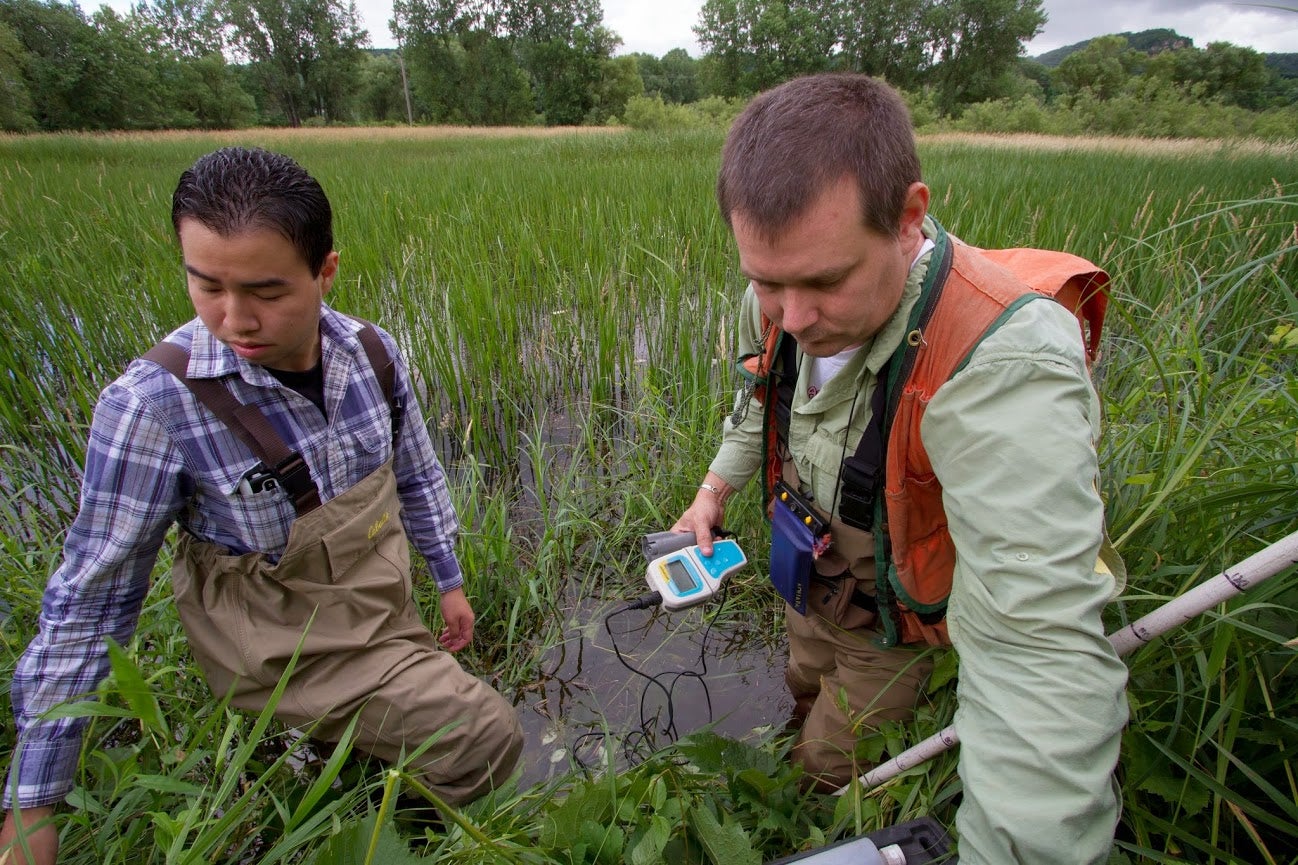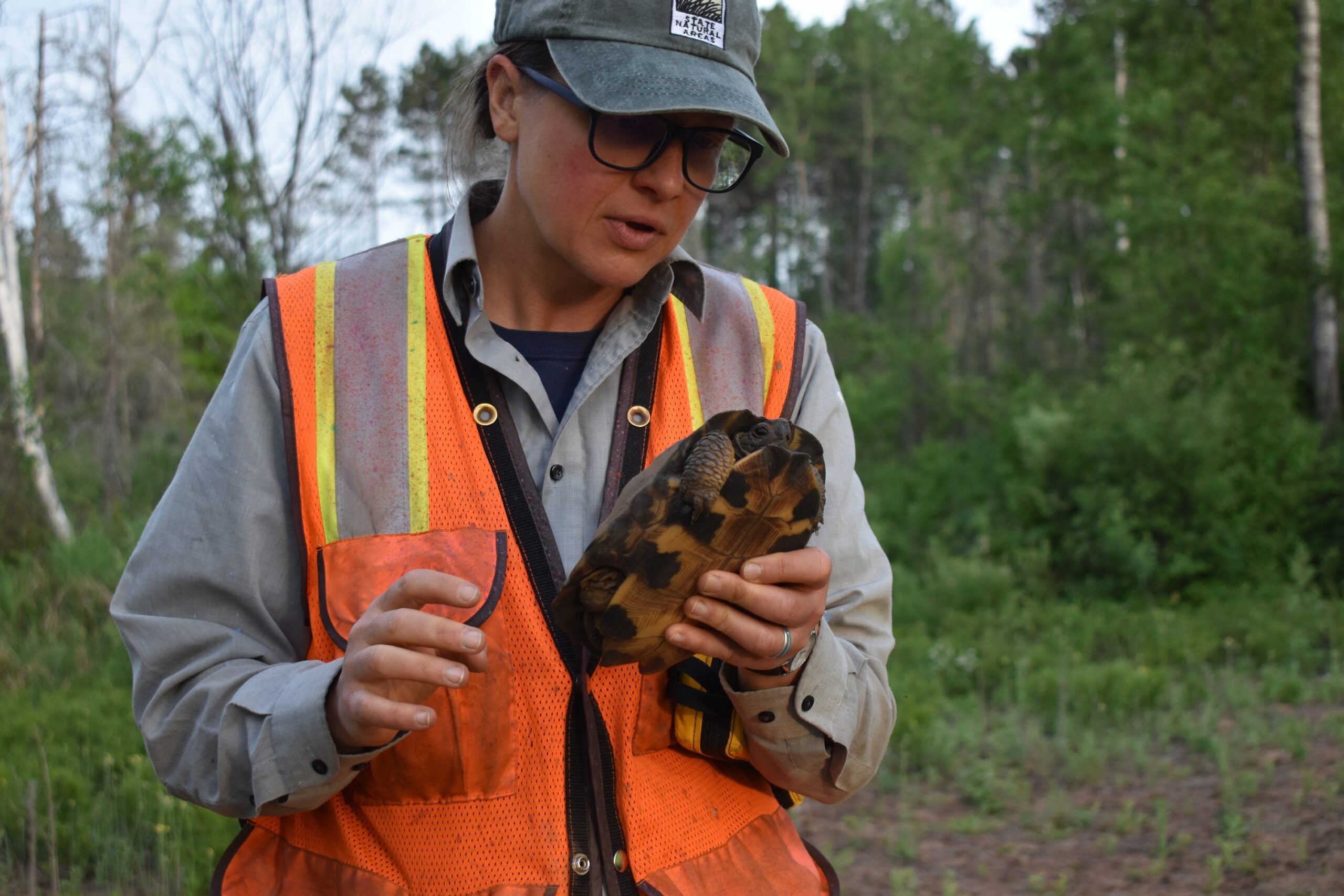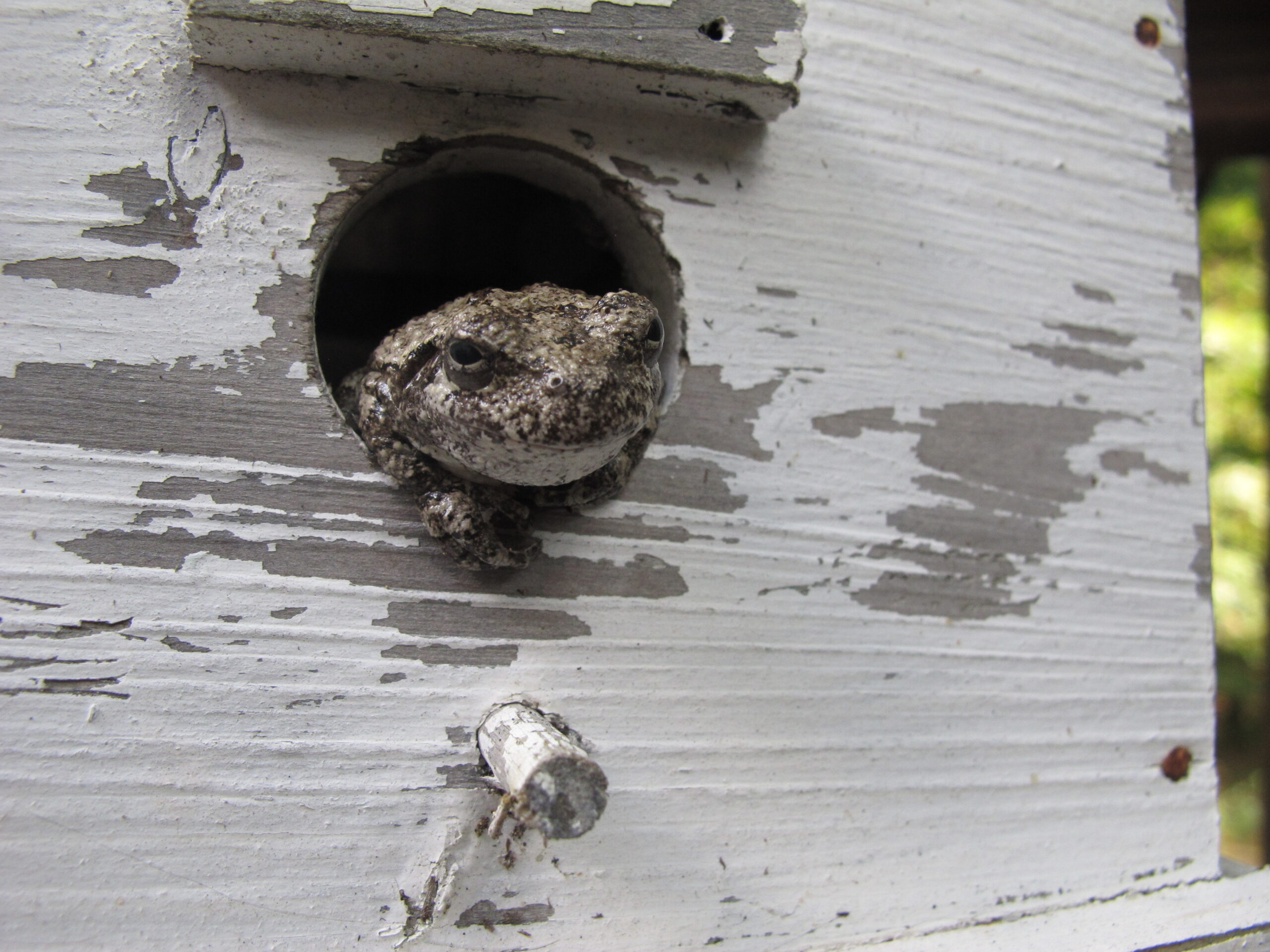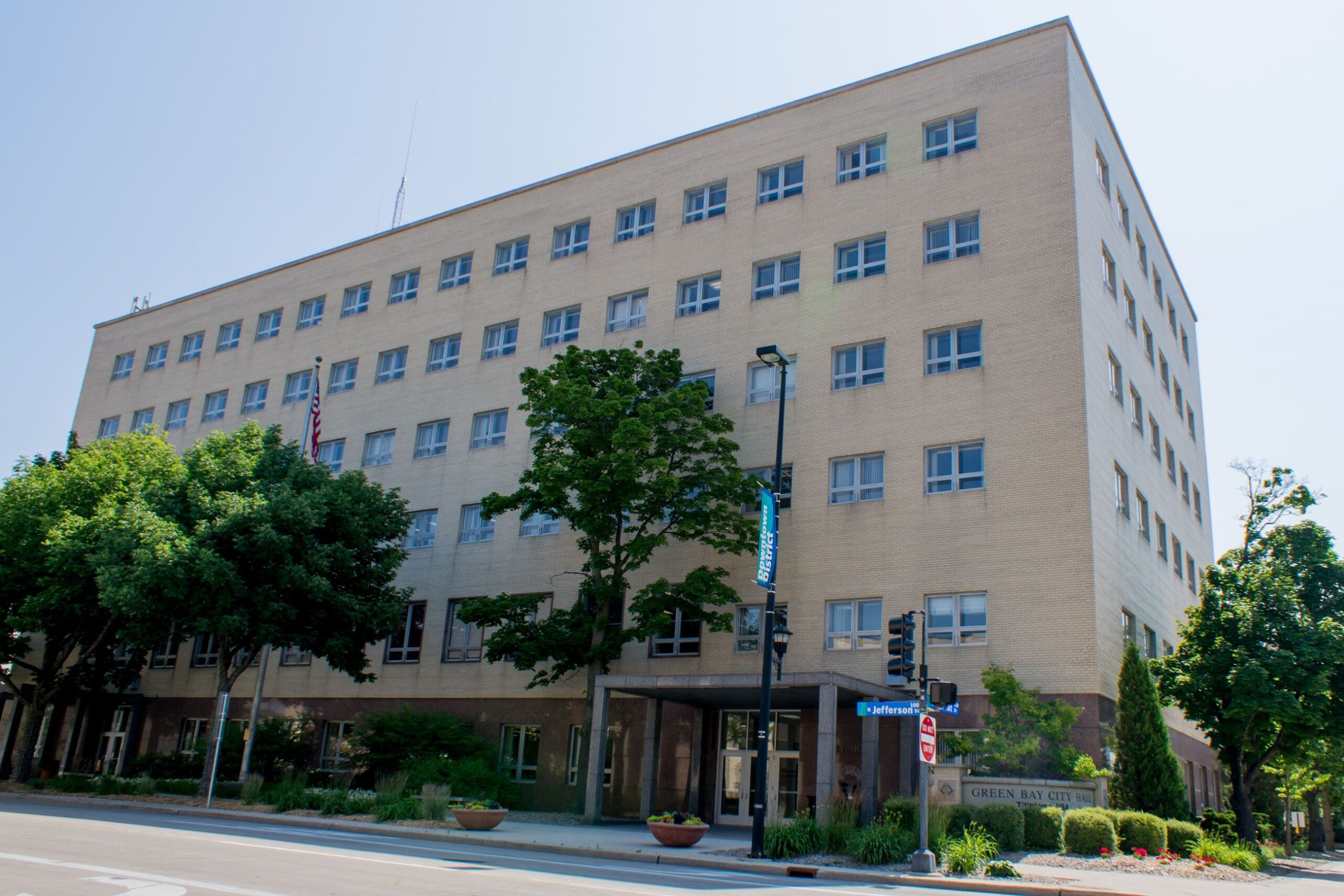Researchers in the La Crosse area are hoping audio recordings will help them better understand declining frog populations.
Along the La Crosse River, four audio recording devices set up around the marsh. On the hour, every hour, they turn on for 10 minutes.
UW-La Crosse Biology Professor Rob Tyser said the array was set up so that he and his students could analyze the sounds of frogs’ mating calls. Tyser says it can help them determine changes in population, changes in behavior, or if the frogs are affected by weather.
Stay informed on the latest news
Sign up for WPR’s email newsletter.
The audio data is then shared with the U.S. Geological Survey’s Upper Midwest Environmental Sciences Center in La Crosse. That office is participating in the nationwide Amphibian Research and Monitoring Initiative, which in part is trying to better understand declining frog populations.
Tyser said the recordings save researchers time and allows them to study a larger area than they could on foot.
“You can hear a frog calling in a certain area and it can take you a long time to locate it visually,” said Tyser. “So hearing it is much, much easier.”
Tyser says beyond the research, he said the marsh audio is another way to document life as we know it.
“It operates on so many levels: scientific, factual,” said Tyser. “But it also kind of tugs at the emotions and your memories, too, which I think is cool.”
The project is in its third year, but Tyser said they need at least 10 years of data to detect long-term changes.
Check out a frog audio recording sample below:
Correction: One of the two men in the photo included with this story was initially identified as Professor Rob Tyser. Both men are actually students at University of Wisconsin-La Crosse.
Wisconsin Public Radio, © Copyright 2024, Board of Regents of the University of Wisconsin System and Wisconsin Educational Communications Board.






